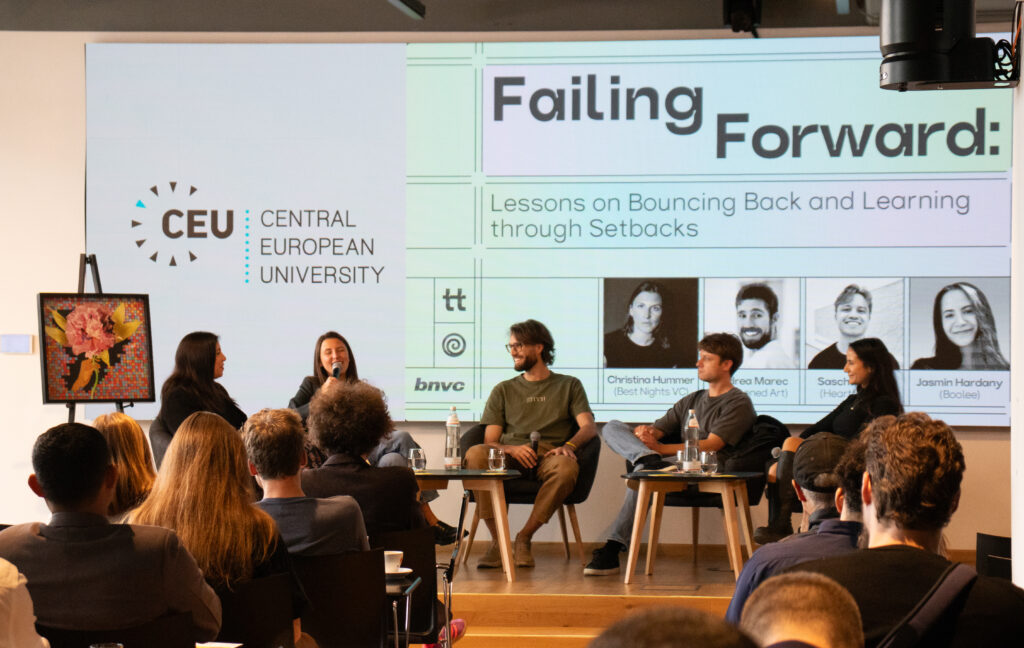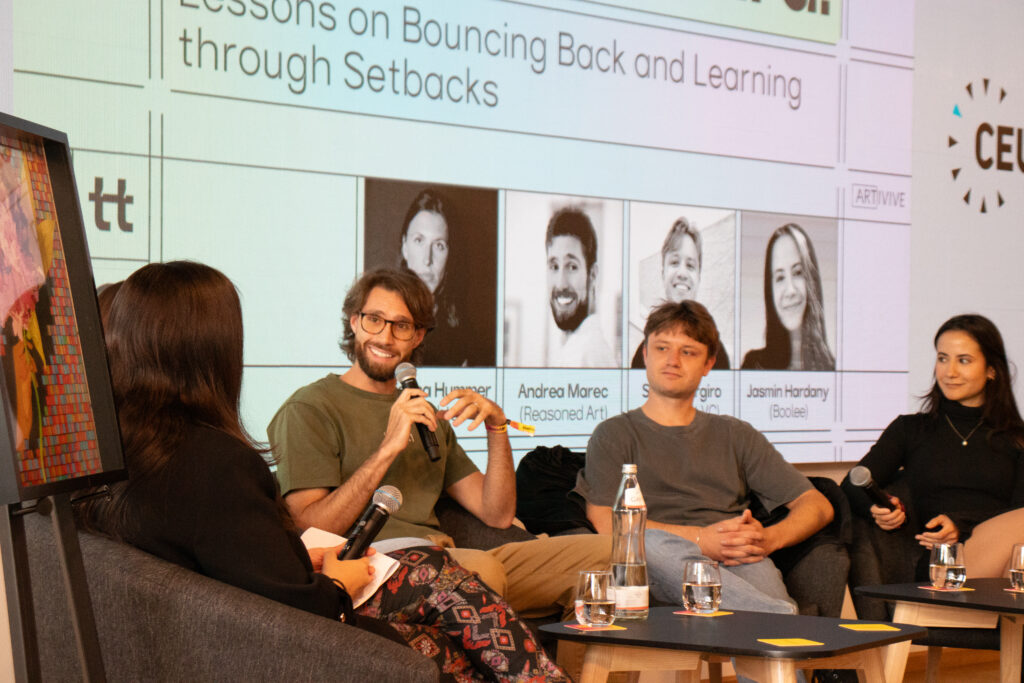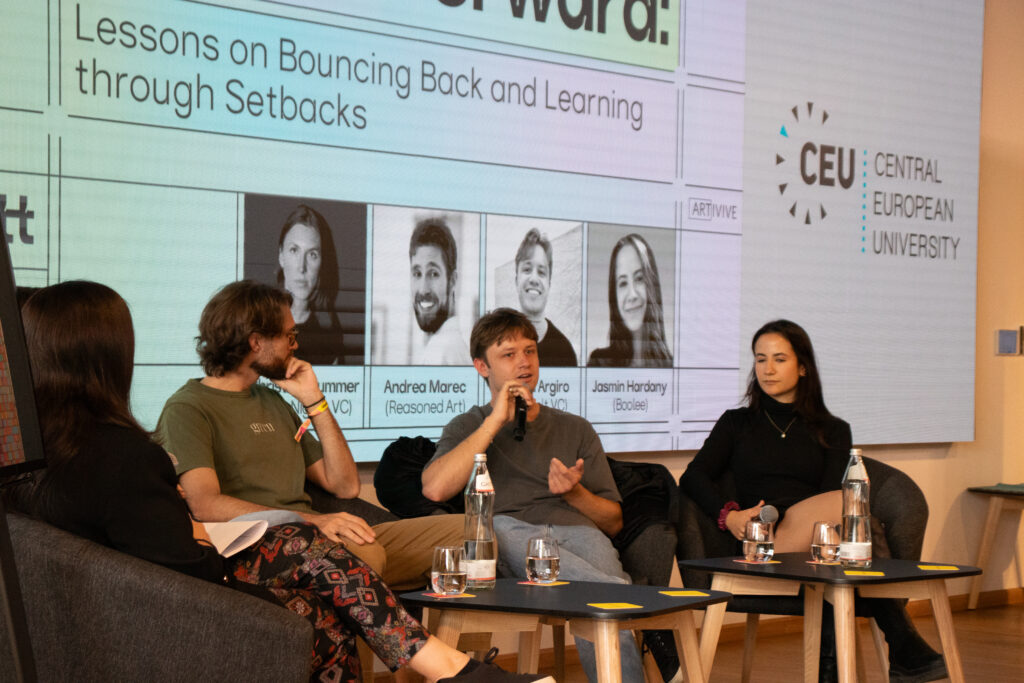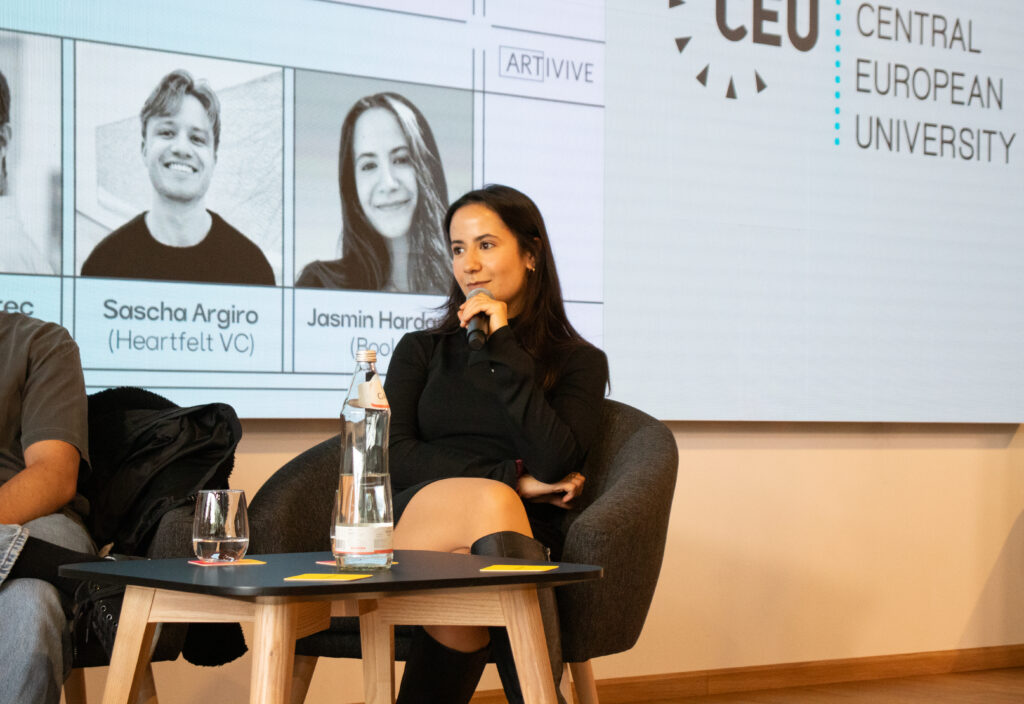Culttech Association at ViennaUP 2025 – Embracing Innovation and Resilience at the Crossroads of Culture and Technology

This year marked the third return of the CultTech Association to ViennaUP, once again setting the stage for an invigorating exploration of the intersection between culture, technology, business, and academia. As the Culttech sector evolves, the event offered a timely reflection on how creative innovation and interdisciplinary collaboration are shaping its future. With thought-provoking panels, cutting-edge exhibitions, and actionable insights, the day fostered deep dialogue and invaluable networking opportunities for artists, technologists, investors, and educators alike.
Setting the Stage: Collaboration as Catalyst
The event began with welcoming remarks from Alexey Steblev (Culttech Association), Tim Crane (Central European University), and Samanta Peña (Culttech Accelerator). Each speaker emphasized the power of cross-sector collaboration—how combining the insights of academia, the risk-taking of entrepreneurship, and the imagination of culture can drive meaningful innovation.
Their opening set the tone for the day: one that valued experimentation, open dialogue, and the courage to confront challenges in pursuit of creative progress.
Highlight Panel: Failing Forward – Lessons on Bouncing Back and Learning Through Setbacks
Moderated by Samanta Peña, the flagship panel “Failing Forward” brought together an exceptional group of voices:
- Christina Hummer, Investor at Best Nights VC
- Sascha Argiro, Investor at Heartfelt VC
- Andrea Marec, CFO at AccessiWay
- Jasmin Hadrany, CEO at Boolee
This candid conversation pulled back the curtain on the emotional and strategic complexities of entrepreneurship—especially when things don’t go as planned.

Redefining Success
Panelists urged attendees to rethink what success looks like. It’s not just about winning; it’s about understanding your long-term goals, building the right culture, and knowing when to say no to opportunities that don’t align. As Jasmin Hadrany pointed out, “A project might look good on paper, but that doesn’t mean it’s right for your company.”
The Power of Setbacks
Sascha Argiro acknowledged that failure is a heavy word, but one we must learn to handle constructively. Whether it’s a co-founder stepping down or a market shift, many “failures” can actually be strategic decisions that position the company for future growth. Andrea Marec likened it to a marriage: “You can only promise to give it your best, to try.”
From Stubbornness to Perseverance
One major takeaway was the importance of self-awareness. Samanta reframed the line between perseverance and stubbornness, encouraging founders to evaluate whether they’re pushing forward because it’s right—or because they don’t want to let go. The market, as Jasmin noted, can often answer this for you: “It tells you whether you’re in the right space, building the right product.”
People, Culture, and Communication
Panelists also highlighted the foundational role of people and communication. “If you can translate the why behind what you’re building, you can bring others on board,” said Andrea. Whether you’re onboarding employees or pitching investors, clarity of mission builds trust.
Advice to Founders and Investors
The panel didn’t shy away from practical advice:
- Have a solid co-founder agreement in place.
- Aim for profitability within three quarters.
- Know that initial hype ≠ product-market fit.
Celebrate wins—even the small ones.
Christina reminded the audience that setbacks, while painful, make you more thoughtful. “You become more heartful. You know what risks to take, and what to walk away from.”

The Value of the Second Time
One of the session’s most empowering moments came when panelists reflected on returning to entrepreneurship after failure. “You’re sharper,” said Sascha. “You know how to get data, how to act on it. That’s why we love second-time founders—they have that chip on their shoulder.” Hardany added, “After going through something as intense as building a company, you gain so much knowledge. You can do anything after that.”
Looking Ahead
Culttech’s return to ViennaUP wasn’t just a reflection—it was a call to action. As the boundaries between culture and tech continue to blur, events like this illuminate the pathways for sustainable innovation. With collaboration, humility, and a willingness to learn from missteps, the future of the culttech sector looks more resilient—and more inspiring—than ever.
Stay tuned for the upcoming research report and exhibition highlights, as Culttech continues to explore new opportunities at the frontier of creativity and technology.

